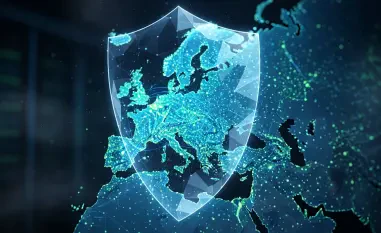In a world where digital interconnectivity increasingly supersedes traditional geopolitics, state-sponsored cyber operations are dramatically reshaping global security dynamics. European cybersecurity experts note that hacker groups backed by nations like Russia, China, Iran, North Korea, the United States, and the United Kingdom are deeply involved in cyber espionage, sabotage, and misinformation campaigns. These covert activities are predominantly aimed at Western nations, targeting critical infrastructure, government services, military activities, and private sector entities.
The Rise of Cyberdefense as a NATO Priority
Cyberdefense has emerged as an essential priority for NATO, reflecting the growing significance of cyber operations in contemporary conflicts. NATO has prominently identified China and Russia as primary state-sponsored cyber threats, associating numerous cyber incidents with hacking groups linked to these countries. Despite these accusations, the Chinese and Russian governments have consistently denied any involvement with cybercriminal organizations.
According to a NATO spokesperson, typical cyberattacks are designed to degrade critical infrastructure, interfere with government services, extract intelligence, steal intellectual property, and hinder military operations. Recognizing the urgent need to counter these threats, NATO has officially acknowledged cyberspace as a domain of operations. This recognition implies that severe cyber campaigns could potentially invoke Article 5 of the North Atlantic Treaty, which is NATO’s collective defense clause—an indication of the gravity accorded to such cyber incursions.
Challenges in Attribution and Advanced Persistent Threats (APTs)
The complexity and breadth of advanced persistent threats (APTs) present significant challenges. Experts agree that definitively proving the link between hacker groups and their government sponsors is nearly impossible due to the sophisticated methods these groups use to hide their tracks and origins. Yet, there is general consensus among Western governments and entities that enough evidence exists to suggest robust connections between specific hacker groups and their state apparatus.
According to the Cyberpeace Institute, some of the most dangerous organizations include Sandworm, Fighting Ursa (APT 28), and Cloaked Ursa (APT 29), which are linked to Russian intelligence agencies, along with Comment Panda (APT 1), Double Dragon (APT 41), and Bronze Vinewood (APT 31), ties to the Chinese state. Moreover, several groups are associated with Iran and North Korea. In total, it’s estimated that at least 150 such organizations operate globally.
European and Western Responses to Cyber Threats
The European Union has taken decisive actions by imposing economic and mobility sanctions on six new cybercriminals and taking measures against 12 entities and 14 individuals linked to cyber operations targeting European infrastructure and institutions. Similarly, the United States and the United Kingdom have issued sanctions against Chinese individuals linked to APT 31, accusing the Chinese government of sponsoring cyber espionage. Despite these accusations, Beijing has firmly denied any collaboration with these hacker groups.
Hacker groups often customize their modus operandi to exploit software vulnerabilities and human error, frequently using infected emails to gain unauthorized access to high-level networks. Richard De la Torre from Bitdefender explains that once a target’s network is compromised, cybercriminals deploy malicious programs or initiate informational attacks to dismantle defense mechanisms, making it exceedingly challenging for security professionals to counter these sophisticated incursions.
Notable Cyber Operations and Their Impact
Instances abound where hacker groups have perpetrated significant cyberattacks. The Sandworm group, for example, famously targeted Ukrainian electrical system employees with infected Microsoft Office documents. Once these documents were opened, the malware spread laterally to sabotage critical systems. Another illustrative case involves Palo Alto Networks uncovering that Fighting Ursa conducted malicious email campaigns against various entities in NATO countries, including embassies and ministries dealing with defense, foreign relations, interior, and economic affairs.
Chinese hacker organizations are also notably active, conducting extensive cyber espionage against several Asian countries, including Laos, Cambodia, Myanmar, the Philippines, Japan, and Singapore. Further investigations by Palo Alto Networks revealed a long-term espionage campaign targeting political entities in the Middle East, Africa, and Asia, conducted by an unidentified Chinese group. This persistent espionage underscores a shift towards quieter, more stealthy operations contrasted with earlier, more obvious hacking attempts.
The Role of Iranian and North Korean Cyber Groups
Iranian cyber groups such as ShroudedSnooper and Cobalt Sapling, linked to the country’s Ministry of Intelligence and Ministry of Security, have been responsible for attacks on telecommunications and governmental entities in the Middle East, particularly Israel. North Korean group Lazarus, infamous for its aggressive ransomware attacks, grabbed global attention with its notorious 2014 attack on Sony.
These hacker groups’ targets generally align with their home countries’ strategic interests and the intelligence frameworks backing them. Typically, these cyber operations aim to gather critical information that provides a geostrategic advantage or meets economic goals, such as funding efforts to overcome economic sanctions. This is particularly evident in North Korea’s campaigns, which often combine financial motives with broader political objectives.
The Expanding Digital Battlefield
As state-sponsored cyber operations intensify, the digital battlefield is expanding, driven by prevailing geopolitical tensions. The Russia-Ukraine conflict, for instance, has led to the creation of new malware and the rise of the Ukrainian IT army, which conducts cyberattacks supporting Ukraine. According to the CyberPeace Institute, over 3,255 cyberattacks by 126 Russian actors have targeted Ukraine since 2022.
Cyber operations present a relatively low-risk alternative to traditional espionage, achieving similar objectives without the physical dangers associated with deploying human agents. Reports, including the 2023 Verizon Data Breach Investigations Report, reveal that 20% of all cyberattacks are state-sponsored, indicating the prevalence and significant scale of these activities.
Strengthening Cyber Resilience in the West
In today’s world, digital interconnectivity is steadily overtaking traditional geopolitics, and consequently, state-sponsored cyber operations are significantly transforming global security dynamics. European cybersecurity experts highlight that hacker groups, backed by nations such as Russia, China, Iran, North Korea, the United States, and the United Kingdom, are heavily engaged in cyber espionage, sabotage, and misinformation campaigns. These malicious activities are primarily directed at Western countries, focusing on critical infrastructure, government services, military operations, and private sector entities.
These cyber threats pose a substantial challenge to global security, as they can disrupt vital services, steal sensitive information, and spread false information to manipulate public opinion. The sophistication and frequency of these attacks are increasing, making it crucial for nations to invest in robust cybersecurity measures.
Furthermore, the collaboration between nations and private companies in the cybersecurity field is essential to defend against these pervasive and evolving threats. As adversaries continuously innovate their tactics, it is imperative for defenders to stay ahead with advanced technology and strategic alliances. The battle in cyberspace reflects broader geopolitical tensions, emphasizing the need for international cooperation and comprehensive strategies to safeguard digital infrastructure and maintain global stability.













